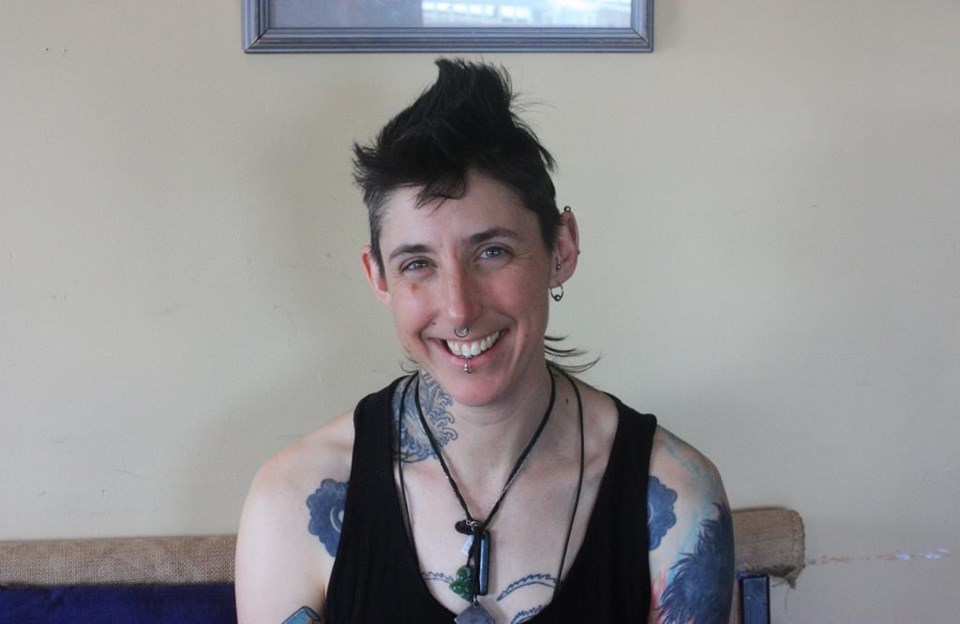YELLOWKNIFE — From rosehip ketchup to wild boar lardo, food businesses across Northern Canada are finding unique ways to use local ingredients.Â
Niki Mackenzie is the chef and owner of Fishy People, a restaurant and butchery in Yellowknife that uses fish from nearby Great Slave Lake, among other locally harvested foods.Â
"There's a huge abundance of food out here in front of us and, just with the way the world is going, it seems weird to me that we're not utilizing more of it," Mackenzie said.Â
Mackenzie said she takes everything local fishers catch and uses every part. Among her specialties are fish sausage, fish ham, trout pastrami, fish eye chips and "northern calamari" made from the stomachs of white fish. She also makes bacon with birch syrup and fennel seeds, capers from spruce tips, pepper from roasted ground juniper and ketchup from rosehip.
"I have regular customers now who come in every week and are always excited to see what new weird and wacky things I've created."
Indigenous people in the North have long lived off the land, harvesting foods such as caribou, berries and fish. But many of the territories' residents rely on imported food and experience disproportionately high rates of food insecurity. That has been attributed to limited transportation networks, socioeconomic inequalities, the legacy of colonial policies, climate change and environmental contamination.
Many food producers in the region are hoping to change that.
France Benoit, who operates Le Refuge Farm in Yellowknife, grows a variety of vegetables and herbs. She uses them in products such as soups and sauces, and sells them from her home and at the farmers market.Â
"For me, it's assuming environmental responsibility for what I'm doing," she said.
"Having the produce locally grown here helps with climate change and our greenhouse gas emissions … It's about trying to build up food security and food sovereignty as much as possible."
Bush Order Provisions, run by Marie Auger-Thomas and Kyle Thomas, is a market garden, bakery and farm store in Yellowknife.Â
Vegetables and greens are sold directly to consumers and used in baked goods. They also sell products from other Northern food producers such as jams, spices and fish.
Anything they don't use or sell is composted.Â
"If we can offset our reliance on trucking food, just even a small amount … it's a benefit to our food system as a whole," Thomas said.Â
The couple is also inspiring others to produce their own food. That includes working with students who run a café in the Tlicho community of Whati northwest of Yellowknife, where they hope to make their own bagels.
The 2021 agricultural census reported there were eight farms in the Northwest Territories.
A variety of plants and berries also grow naturally throughout the territory and residents can hunt animals such as moose and bison.
After Mike Mitchell learned how to collect birch sap and turn it into syrup from Métis Elder Frederick Beaulieau in Hay River, he and Craig Scott started Arctic Harvest in 2010. Since then, they have been tapping trees just outside Yellowknife each spring, with permission from the Yellowknives Dene First Nation, to produce Sapsucker Birch Syrup and teach others the practice.Â
"Food security is a big issue in the North," Scott said, noting there is only one road in and out of Yellowknife. "I'm not saying that birch syrup is going to feed everyone in the N.W.T. or anything, but we have to learn to provide our own food."
The 2021 census states there were 88 farms Yukon producing crops, dairy, eggs and meat.Â
Landed Bakehouse in Whitehorse uses wheat and barley grown by Yukon Valley Farm, milk from Sunnyside Farm, eggs from Mandalay Farm, and meat from The Farm Gate.Â
Simone Rudge, her husband and son own Tum Tum's Black Gilt Meats, a butcher shop and charcuterie in Whitehorse, which offers meats from Yukon farms. Along with regular cuts of meat they also offer organs, bone broth and products such as wild boar lardo butter, meat crackers and biltong, a South African-style dried meat.
"It's expensive to raise livestock in the North," said Rudge, who also owns and operates Aurora Mountain Farm. "In order to get maximum value from an animal, you need to use all of it."Â
In Nunavut, there are no farms but many Inuit hunt and fish. Local foods such as muskox, seal, Arctic char and whale skin and blubber can also be purchased at Nunavut Country Food in Iqaluit or Kitikmeot Foods in Cambridge Bay.Â
Warren de Bruin, food and beverage consultant for Nova Hotel Group, said his team tries to take advantage of local foods at The Discovery in Iqaluit. The hotel's restaurant, the Granite Room, offers dishes featuring seasonally available items including Arctic char and caribou from hunters in the territory.
"It's hugely popular, especially with the local community in Iqaluit."Â
This report by The Canadian Press was first published May 22, 2023.Â
This story was produced with the financial assistance of the Meta and Canadian Press News Fellowship.
Emily Blake, The Canadian Press



